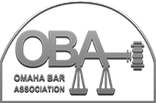Omaha Medical Misdiagnosis Lawyer
John Hopkins Medical Center conducted research over a 25 year period of time in regards to United States medical malpractice claim payouts, which revealed that diagnostic errors were the largest fraction of claims and resulted in the most overall harm to patents. The total amounts of payouts for misdiagnosis between 1986 and 2010 amounted to $38.8 BILLION.
Further research from this study indicated that 80,000 to 160,000 patients suffered from preventable injuries or deaths relating to misdiagnosis. Of course, these accidents are more common in outpatient care rather than inpatient. In outpatient care 68.8 percent of misdiagnosis occurred, while inpatient care resulted in 31.2 percent of misdiagnosis errors. However, inpatient care misdiagnosis errors tend to be more fatal than those of outpatient.
At Inkelaar Law, our Nebraska medical malpractice attorneys have a tremendous amount of sympathy for the victims and families of misdiagnosis, as everyone close to that individual may suffer from emotional and financial problems following these types of errors.
To begin exploring your legal options, complete the FREE Case Evaluation, or call 1-877-537-4665 today.
Types of Misdiagnosis Errors
Across the state of Nebraska people place their trust in medical professionals to properly diagnose them with illnesses and injuries. Unfortunately, these medical professionals we trust so much often misdiagnose patients, which may result in further illness, injuries, and possible death. Some common types of misdiagnosis errors our attorneys have experienced include:
Delayed Diagnosis
A delayed diagnosis occurs when a medical professional makes the correct decision regarding an illness or injury; however they do so with a significant delay. This form of misdiagnosis is one of the most common types of errors witnessed by our attorneys.
Failure to Diagnose Related Disease
A medical professional may fail to diagnose a related disease by recognizing an original disease, while missing a related disease. This related disease will typically go hand in hand with the primary and diagnosed disease, and may have an increased incidence in patients with the primary disease.
Failure to Diagnose Unrelated Disease
Failure to diagnose an unrelated disease may occur when the correct diagnose is given to one disease, yet another unrelated disease goes unrecognized.
Failure to Recognize Complications
This may occur when a medical professional makes the correct diagnosis, however fails to recognize complications or factors which could change or aggravate the illness or condition.
Incorrect Diagnosis
An incorrect diagnosis occurs when a medical professional diagnoses a patient for a condition they do not possess. For example; if a patient was diagnosed with HIV, yet the patient does not have HIV, this is an incorrect diagnosis.
Missed Diagnosis
Missed diagnosis occurs when a medical professional gives a patient a clean bill of health, when in actuality they possess an illness, injury, or disease.
If you believe a medical professional has performed a misdiagnosis, you may be entitled to compensation. Our attorneys welcome you to speak with us, free of cost, regarding your legal options today.
Contact Our Nebraska Medical Malpractice Attorneys Today
Medical professionals are not required to be correct each time they make a diagnosis, however misdiagnosis may occur when all the proper exams are performed accurately or evaluated by a medical professional with the highest level of care.
The attorneys at Inkelaar Law have defended numerous individuals that have fallen victim of misdiagnosis, and will seek the MAXIMUM compensation benefits for your losses and damages. With offices in Omaha, and Lincoln, Nebraska, our attorneys are able to serve throughout the entire state and elsewhere needed.
Some of the locations our attorneys serve include:
- Alliance
- Beatrice
- Bellevue
- Columbus
- Fremont
- Grand Island
- Lexington
- North Platte
- Sidney
For your free no-obligation consultation with one of our experienced attorneys, call 1-877-537-4665, or complete the FREE Case Evaluation at the top of this page.







